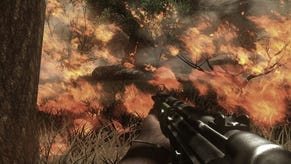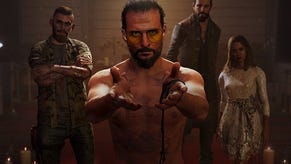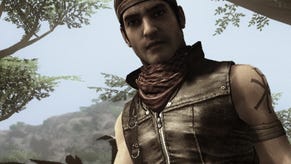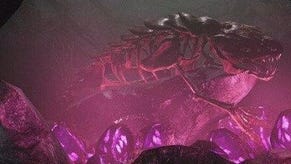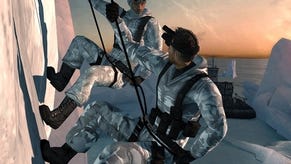Far Cry 2
Island paradise out, malaria in.
But the game certainly tries to, most notably with the buddies. A gaggle of fellow mercenaries (many of them will be the characters you chose not to control), your buddies are collectable NPCs who will pop up to offer mission advice, or stage daring rescues when you're downed, often taking it between the eyes in the process. Filling in around your actions, living and dying based on your choices, they're charming character sketches drawn with lightness of touch. Some are generous, others curt, surly, or even obnoxious, but all of them have genuine personalities, which makes the first time you jab them with a health syringe and they still die, at odds with the usual videogame laws of cause and effect, all the more memorable.
Other ventures into unpredictability are not necessarily so successful. Far Cry 2's taste for realism is a mixed blessing. It's hard to locate the fun in guns that jam unpredictably and cars that need to be ceaselessly nannied, especially when it's a spanner in the works of a machine that otherwise runs on skill (and, in the guns' case, arguably just a cheap way of adding tension to an unremarkable battle).
Ubisoft might protest that these are elements which move Far Cry 2 beyond mere entertainment - that focusing on the perishable nature of machinery and the need to constantly control the malaria they've given you are crucial to immersing you in a real environment. That's not entirely convincing, however, as the game is, ironically, at its most artificial at the very moments it thinks it's being realistic. The idea that any car can be fixed by repeatedly tightening a single screw in the radiator is just as ridiculous as a floating health-pack when you get down to it, and the malaria you've been saddled with is pure stage-management, an artificial means of prodding you into a series of repetitive side-missions to obtain drugs.
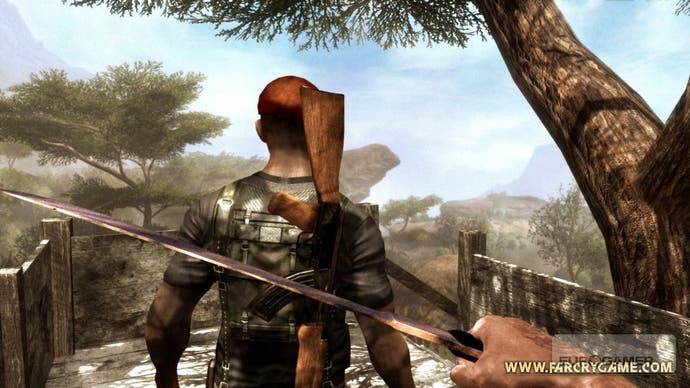
And so the game grinds against itself, its onscreen prompts and collectables wildly at odds with a design that ensures each gun you find has a believably finite lifespan. This shorthand is definitely preferable to a deeper, but more frustrating mechanic (each time I magically fixed my car, I offered a silent prayer of thanks that there wasn't some arcane mini-game where I actually had to repair specific engine problems) but it does make you question why Ubisoft insisted on going even halfway with the artifice in the first place.
On much safer ground is the multiplayer, thanks to a careful raiding of COD4's encampment, making off with the levelling system and load-outs, while adding the single-player's flammable environment and vehicles. Elsewhere, the level editor is actually more of a full-blown level creator, allowing you to tweak the geography itself, and even telling you how smoothly the finished product will run.
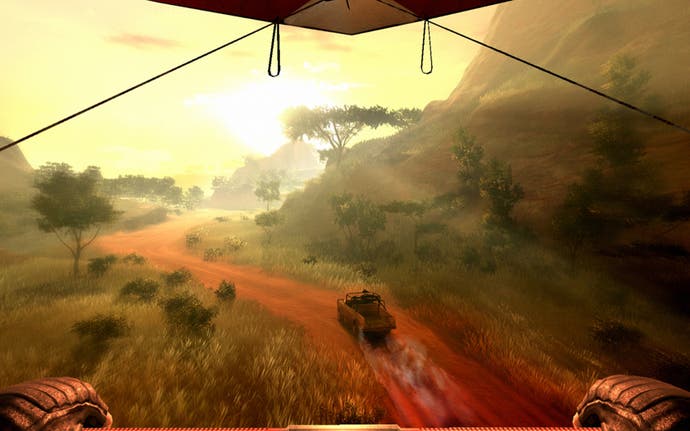
Ultimately, the most immediate reference for Far Cry 2 is not Crytek's original, but Deus Ex (Invisible War, sadly), in the way it presents interesting ideas, often slightly heavy-handedly, and features a gently saggy seriousness that can sometimes come at the expense of pacing. The result is a fascinating game with successes and failures that are both equally mystifying; one that rebuilds its story regardless of how badly you mistreat it, and yet struggles to spice up a simple escort mission. Far Cry 2 is unforgettable rather than perfect, then; brilliant, frustrating, sombre and comical, it offers freedom within extremely curtailed limits, and strives to treat its players like adults. In the end it remains, true to its source material, a game that was born to struggle with itself.

